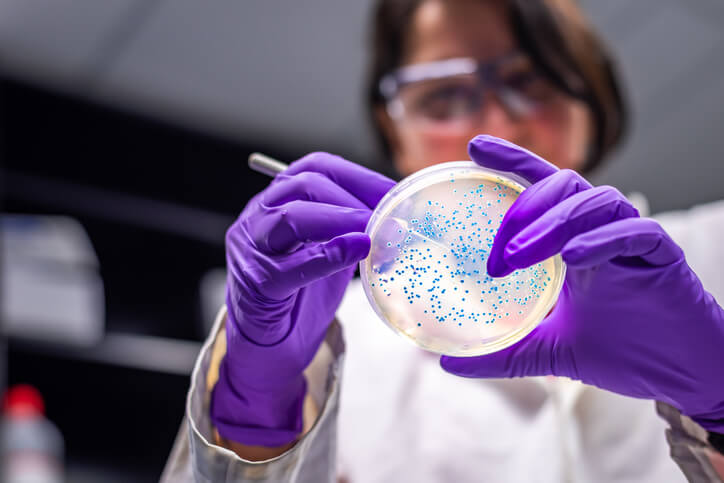
E. coli is an abbreviation for Escherichia coli, which is the classification for a diverse group of many strains of bacteria that are naturally found in the intestinal tracts of people and animals and some in the environment.
How Dangerous Is Shiga Toxin-Producing E. coli?
Most strains of E. coli are harmless, but there are some that can make humans and animals incredibly sick. Some strains cause diarrhea while other strains cause respiratory and urinary tract infections among other illnesses.
What Potential Factors Contribute to the Pathogenic Spread of E. coli?
- Facility and Equipment Sanitation and Design
- Cleaning and Sanitizing Practices
- Washing, Drying and Storage of Products
- Water, Soil and Adjacent Land Use
- Employee Health and Hygiene Practices
- Growing and Harvesting Practices
- Animal Intrusion
What Foods Have Been Linked to the Most Common E. coli Outbreaks?
- Raw Hamburger Meat & Ground Beef
- Romaine Lettuce, Leafy Greens, Spinach & Ready-to-Eat Salads like Spring Mix Blends
- Raw Fruits & Vegetables
- Unpasteurized Dairy Products & Juices
- Insufficiently Cooked & Processed Meats
- Clover & Alfalfa Sprouts
- Soy Nut Butter
- Bison
- Flour
- Frozen Food Products
- In-shell Hazelnuts
- Cheese
- Prepackaged Cookie Dough
- Lebanon Bologna
- Pizza
You can find some of the most up-to-date information about E. coli outbreaks on the CDC website too.
Why Are E. coli Outbreaks Happening More Frequently?
As some foods go through even more processing environments for consumption, this also means that these products come in more contact with people and processing equipment that can increase the chances of contamination.
Due to the textures of some foods, think vegetables like lettuce, wrinkles and pockets are common places for bacteria to settle into and remain post-handling and processing.
Due to the seasonality of some of the items mentioned above, this also means that outbreaks appear to be more frequent during these times, given a lot of them are in-season at similar times.
What Can an E. coli Treatment Company Do?
Remediation: Treating E. coli With Probiotics
Pre-Liminate™ probiotics blends are formulated to treat pathogens such as E. coli and can help you remediate your contamination in human or animal food, livestock, or agriculture. E. coli infections are usually addressed by symptomatic treatment only and antibiotics are typically not utilized, as they may actually cause further complications. This suggests that it’s very important to eliminate and source of potential food contamination before it could lead to a foodborne illness outbreak.
Identification Through Testing
Log10 also provides testing services to identify the presence of microorganisms in a product or environment that require immediate attention or further analysis.
E. coli and Probiotics
Log10 Pre-Liminate™ custom probiotic blends can reduce the chance of E. coli contamination your facility, helping to provide protection and food safety to consumers of your products. Contact us to learn more.
Contact Log10 to learn more about how we can help you treat E. coli with probiotics or test for food contamination at your facility.
